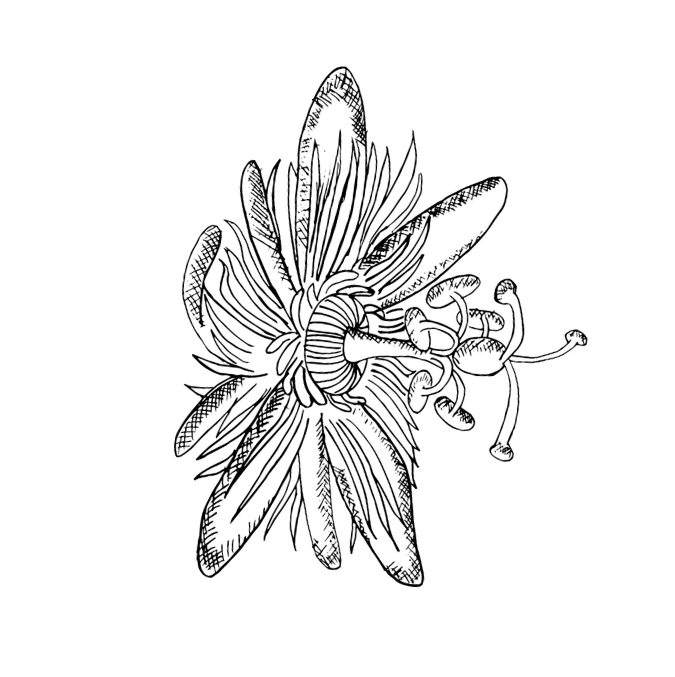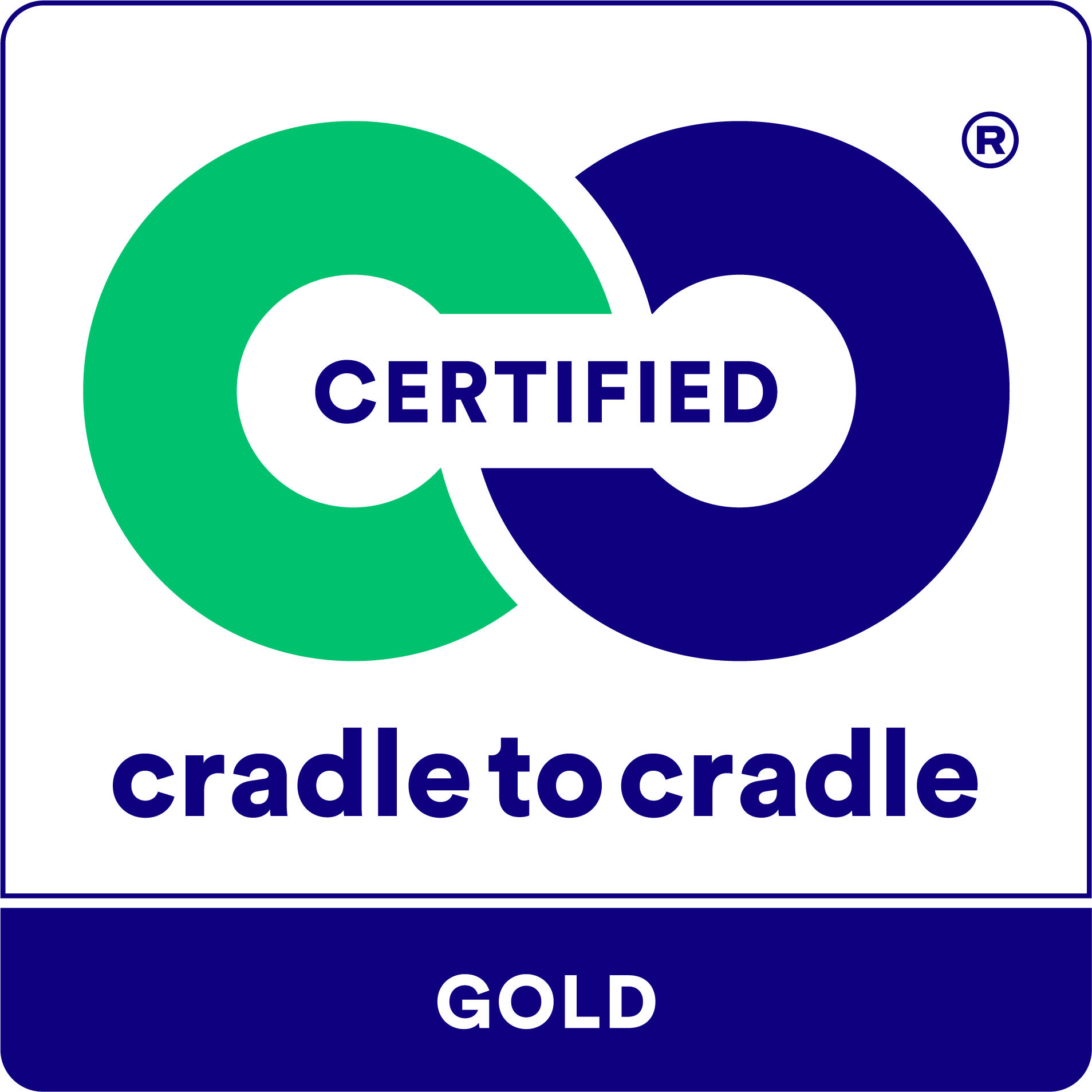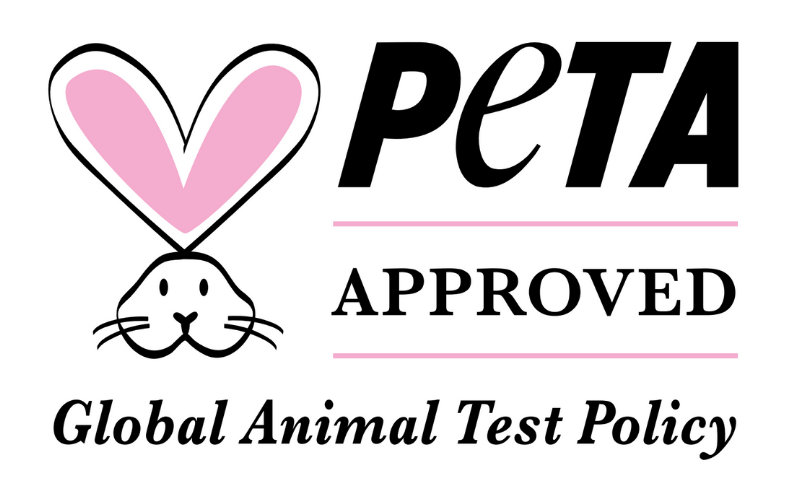Questions & Answers
Here you will find 50 answers to 50 questions about Clean Beauty the products of LANUR: from the production to the circular economy to the explanation of why there are no labels on our cosmetics. The Lanur team wishes you a lot of fun and knowledge gain while browsing our FAQ! And if you have a question that you can’t find an answer to here: Please send us your question with the contact form. We will contact you as soon as possible.

Our packaging does away with everything that is not really necessary. We can fill 30 ml and 50 ml into our little pot. These seem smaller than others on the market without a false bottom.
The packaging of no excuses LANUR is recyclable for the technical cycle and also safe for the biological cycle. Therefore, we want the packaging back so that we can shred it and create new packaging again without any other additives. Or if this packaging is unsightly, it can be safely transferred to biological cycles. An optimal solution of sustainable packaging for a modern society and the environment.
The innovative material of our crucibles can be transformed back into soil by microorganisms and is safe for biological cycles in terms of material health. However, this process requires 60 degrees Celsius. A well kept home compost only makes about 40 degrees. In the industrial composting plant, the material is completely decomposed for about 4-6 weeks. In the future, there will be globally widespread systems of industrial composting plants that optimally reintegrate the nutrients into the biological cycle as biogas or biomass. These systems have been tested and are only awaiting official approval. When this arrives, this procedure will be recognized throughout the EU.
No. Organic waste is no place for packaging, whether supposedly compostable or not. Composting facilities have no way of knowing which material will decompose, which will not decompose at all, or which will leave microplastics behind or even be toxic.
- The goal is to keep them in technical cycles and to reuse them 100%. If they were printed, this would not be possible, or only with enormous effort.
- There are only a handful of inks that are harmless and defined as safe for biological cycles
- For recognition, we made a ribbon from the same polymer material, so that it is easier to distinguish the products when using.
Our packaging does not contain bisphenol A. We do not make a big fuss about this because our packaging does not contain any other chemical compounds that are harmful to health. Every single ingredient is positively defined according to GOLD Cradle to Cradle Certified® and material health is thus scientifically confirmed.
No excuses LANUR jars are made of a newly developed polymer in which all ingredients are safe for biological cycles and therefore environmentally compatible. The ribbon is also made of the same material. This future-proof compound, although it has to call itself plastic and can hardly be distinguished from it in terms of feel, belongs to a completely new and completely degradable (recyclable) generation of packaging materials.
According to our point of view, we have eliminated conventional plastic. We only work with safe materials that have the scientific backing of a Cradle to Cradle Certified® material health certificate.
Already processed materials, as they are usually in use, contain heavy metals and harmful chemical components, some of which migrate. On the one hand, this contaminates the fresh material that is added to the recycled granulate to ensure quality, and on the other hand, it would pollute the product contents because harmful substances from packaging also migrate to the products. We have chosen a new clean cycle in which materials remain harmless and circulate much longer.
It will turn into soil because it is completely biodegradable. Without releasing any harmful substances, apart from the naturally bound CO2. The organisms found in nature can metabolize the material, which means that no microplastics remain. If conditions are not optimal (e.g. less than 60 degrees Celsius), this will simply take longer.
This would have been a viable alternative, but no excuses LANUR chose the path of innovation.
Aluminum in cosmetics has been critically evaluated scientifically, which is why we do not want to use aluminum in packaging in the sense of no excuses.
Due to the use of fillers, glue and printing ink, paper recycling leaves slag that is declared as hazardous waste. Our partners have developed solutions for the future, whereby recycling the unpolluted paper fibers in technical cycles and returning the slag to biological cycles is possible at all.
Everything about the primary and secondary packaging, as well as our POS material, is fully recyclable. Unfortunately, we are not yet able to generate sticker labels for mailing. Thus, our certified shipping carton is polluted and goes to the usual carton collection. It is also not yet possible for us to create the delivery bills and invoices in the Cradle to Cradle quality we are striving for. Commercial printers cannot yet be equipped with the appropriate ink and we cannot send the orders from the print shop. As soon as an opportunity presents itself, we grab it! We have already implemented the basics for this.
Following the cycle through to the end of our products and actively returning the components is a very cost-intensive undertaking. A service that we offer out of conviction to conserve resources and protect nature. We are constantly optimizing this area and will also be able to come up with new solutions as our network grows. As soon as it is possible, we will cover the cost of return shipping for it. We are very grateful to our customers when they actively support us and make their contribution.
We do not recommend consumption of our products. Just because they are completely free of toxins and made from natural materials, it cannot be inferred that this makes them wholesome or suitable for consumption. On the skin they perform great services for you.
Yes. When I burn the pot, it leaves a little bit of charcoal and it releases the natural CO2 that is trapped in the material. But this means losing the raw material that we could actually send into further cycles. We are fundamentally opposed to the burning of valuable raw materials.
Not all of our products need preservatives and where we can, we do without them. However, where necessary, we have used Sodium Benzoate and Potassium Sorbate. Preservatives that are approved for natural cosmetics, as well as food.
The pot on the bottom label provides information about this. Basically, a product that does not contain water is considered to have a long shelf life. As soon as water is added, a mixture becomes more unstable and the risk of germination increases. Since we preserve only in a natural way, we recommend not to save the products for too long.
Lanolin Repair Balm becomes liquid at a temperature of about 40 degrees. It may be more comfortable to use in the summer if stored in a cool place. As soon as the liquid balm cools down again, it becomes solid and it does not lose its effectiveness. If you let it set again on a straight surface, the product will look like new (untouched).
To achieve the most balanced care possible, we use fragrances, such as essential oils, very sparingly. Those who are more familiar with perfumed cosmetics may feel that something is missing. If the product has already been open for 12 months, the scent may change, as natural fragrances are less durable than perfumes. But this does not mean that the product has then lost its effect. It is better to use up the products within the period printed on them.
We consider lanolin to be the most wonderful raw material on earth, but animal welfare is our top priority. We are convinced that with our work, in perfect balance with flora and fauna, we have chosen the right path. By using organic lanolin and organic beeswax, we support ecologically sustainable forms of agriculture, which are essential for the future of us and our planet.
Animal welfare is our top priority. We cannot imagine a world without animals. Since we use animal raw materials, transparency and control of our supply chain is enormously important to us. We also strongly condemn mulesing (controversial Australian practice to protect against fly maggot infestation by removing the skin around the animals’ tails). We support only organic and not intensive agriculture. Thus, even in the organic apiaries that supply our beeswax, no bee pruning takes place.
We are very proud to announce that the first batch of Lanolin Repair Balm was made from the world’s first ever batch of certified organic wool wax. The sheep live freely in the Patagonian pastureland. A leaf has 40,000 m2 of free space to live and only comes into contact with people when necessary. Thanks to the climate, the use of many pesticides is also unnecessary to protect the health of the animals. The project of our suppliers supports the preservation of ecological animal husbandry and animal welfare in Patagonia, where there is no factory farming at all. With additional yield from organic wool production, we strengthen this model of agriculture in medium-sized farms and promote the protection of nature and the environment.
Lanolin is the name for wool fat, which is obtained from the fleece of sheep after shearing. It encloses the hair and protects the skin of the animal against dirt and weather conditions. Since ancient times, the healing and nurturing properties of the natural raw material have been praised and are still used today in pharmaceutical ointments.
The wax is a by-product of wool extraction and, in the case of our Bio-Lanolin, is mechanically washed from the fleece after shearing. It is then cleaned separately in gentle processes.
It is COSMOS certified 100% organic.
The protective film that lanolin puts on the skin is immediately recognizable by the unique and unmistakably velvety feeling it leaves behind. The skin becomes soft, supple and smoother. Even deep skin cracks are nourished and regenerate after just a few days of regular use. Wool wax has this highly valued ability because it is very similar to our skin’s own lipids and therefore it can penetrate very deeply into the skin layers. There it acts as a moisture reservoir because it absorbs water well and releases it as needed.
In our opinion, it makes no sense to send packaging materials for very small quantities into circulation. Nevertheless, our Lanolin Repair Balm still fits almost in any handbag. And once you have experienced the incomparable effect, you will want to use it to care for chapped feet or cracked fingers. You need a little bit more.
Our beeswax comes from German and Austrian beekeepers who have committed themselves to the guidelines of Bioland, Naturland or EU-Bio. In the selected small and medium-sized farms, bees are cared for with love and passion, and it is ensured that neither bee pruning nor other forms of conventional beekeeping take place. Wax is a by-product of honey production and provides farms with another sustainable source of income in addition to honey marketing. In this way, we directly and indirectly support ecologically sustainable forms of agriculture.
The bees produce the combs from their sebaceous glands, which are located above the hind legs. The precious raw material, is obtained very carefully, separating the bee colony from the combs from which honey is obtained. After that, the honeycombs can be melted down and further processed. It is obvious: without bees almost no plant grows anymore. Our partners are doing their best to protect the valuable ecosystems of bees and preserve the natural way of pollination for the present and future generation.
It is certified organic.
We do not test on animals and we do not cooperate with anyone worldwide who does or demands such testing. We have also provided this evidence in line with PETA’s global animal testing policy.
It means from cradle to cradle and is in contrast to our current economic system, cradle to grave. A product, or a material, is thus conceived from origin to origin and does not reach a state of uselessness for nature and society (waste) after one or a few cycles.
By accredited experts – in our case EPEA Switzerland – all ingredients of a product or a material are identified down to 100ppm (0.01%) and checked for their material health and safety for biological cycles.
Cradle to Cradle Certified® is a globally recognized assessment standard for safe, sustainable and recyclable products. Designers, manufacturers and brands around the globe rely on the Cradle to Cradle Certified® certification products standard. It is considered a transformative guide to developing products with a positive impact on society and the environment. Thousands of products are Cradle to Cradle Certified®, from perfumes to floor coverings, T-shirts and jeans to water bottles and window care products. A growing number of brands, organizations and institutions recognize Cradle to Cradle Certified® certification as the preferred standard for their purchasing decisions.
By scientifically testing all ingredients, this certification establishes that only safe active ingredients (for humans and the environment) are found in the products and that they do not contain microplastics, for example.
It is the world’s highest standard for safe and recyclable products. Thus, this certification follows the holistic approach that goes to the heart of our philosophy. “Borrow from nature and return it intact.” The following items are evaluated: Material Health, Material Recycling, Renewable Energy and CO2 Management, Water Management and Social Fairness.
We want to expand our range step by step. We are looking for pure raw materials and if everything is right, we can create new circles and develop. Our future is a constantly growing positively defined ecosystem, with more and more possibilities and products. For consumption without a guilty conscience.
In the store locator you can find the stores where no excuses LANUR is available. You can also return your empty pots there. A list of other companies we work with can be found here:
- EPEA Switzerland GmbH
- Naturamus
- Bayonix
- Vögeli AG
- Oceansafe AG
- Morenoperalta
- Saloon
Unfortunately, it was not possible for us to obtain locally the raw materials that met our high ecological and quality requirements. We have chosen to bring together the world’s best active ingredients, and to do so without unsafe chemistry. In the case of lanolin, there is currently only one wool laundering plant in the entire world that cleans the wool mechanically and not chemically, and it is located in Patagonia.
The founder of the company, Karin Lanz, has always had a very close relationship with nature and deep trust in its abilities. When she bottle-raised an orphan sheep, her hands came into daily contact with the soft fur of the baby animal and, of course, with the wool wax. Because her hands, nail beds and nails have never been so beautiful, the idea for the sustainable care line was born.
Behind LANUR is the deep conviction that nature knows the right way. If we trust in this and we restore the balance with nature, then we can live on this planet as beneficial beings. Then we can enjoy again and satisfy our individual needs without endangering our own continued existence. So behind LANUR is the idea that pleasure and benefit should not cause us a guilty conscience.
Our products are carefully composed with safe and clean ingredients. Neither in the tests carried out by us, nor by our customers, allergic reactions have been detected so far. But we humans and nature are so complex and individual that there is always the room for the skin to have a reaction under the multitude of influences to which it is exposed. In such a case, please refrain from using our products and talk to a dermatologist. Do not use the product again until it has been ruled out that the skin reaction is related to it.
no excuses LANUR products you can buy online here. You can find a list of dealers here.
You can find our products with prices in the store here.
In the circular model, everything must consequently go back. It’s a paradigm shift and you approach things at the source. Compensation is a lever from a linear system where you have no other options but to compensate elsewhere because you have no opportunity for improvement. Often this is better than nothing. We know that shipping our products generates CO2 and we will do everything we can to improve these ways, always communicating honestly and not shirking our responsibility with an offset payment. (Shipping, transport and distribution are the big areas that we can’t clean up on our own. We make sure that our packaging is future-proof and we radically eliminate everything that is not necessary, so we can at least keep the volume to a minimum).
The calculation of a carbon footprint comes from the linear system and assumes that nothing is recycled. It is not possible to measure these two models according to this scale. The linear model is designed for consumption and the CO2 footprint is used to measure what negative impact is created. The circular model assumes a positive definition, with nutrients being recycled back. This does not result in a pure minus calculation. The goal is a positive footprint, thanks to/despite economic activity. Man as a beneficial insect and no longer as a parasite.
Our products are 100% manufactured and bottled in Switzerland. (Parts of the packaging are produced in Germany)
Future-proof means that all materials and processes are safe for people and the earth and that no resources are wasted. We operate in a way that is fit for grandchildren and are concerned that future generations will once again be able to inherit a healthy world.
Apart from fair, sustainable trade, Lanz Natur AG has committed itself to supporting midwifery associations in the respective sales countries with a percentage of the net profit. We understand life itself as the most important cycle. We are committed to ensuring that birth, mothers and children can be protected and supported.










